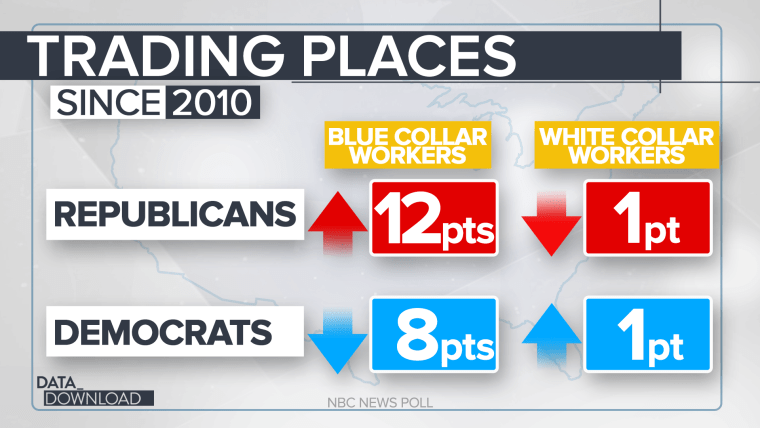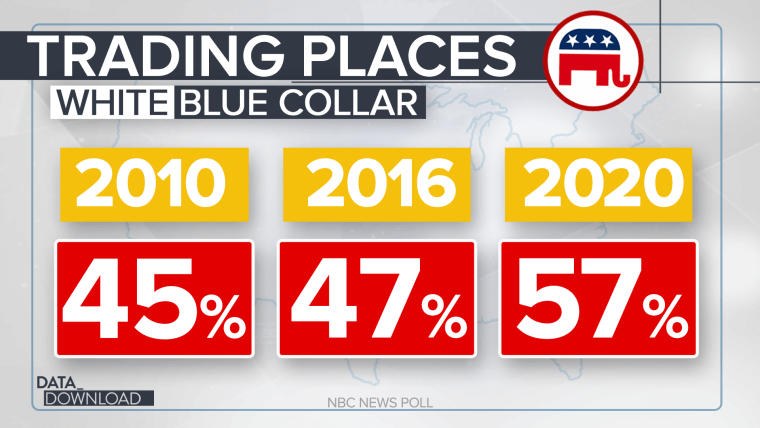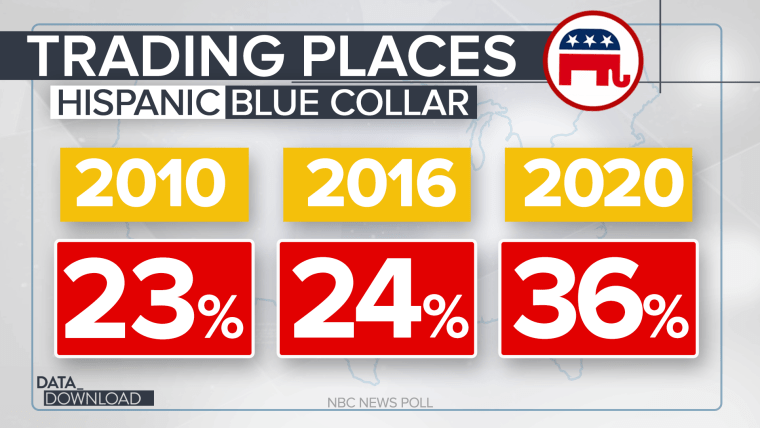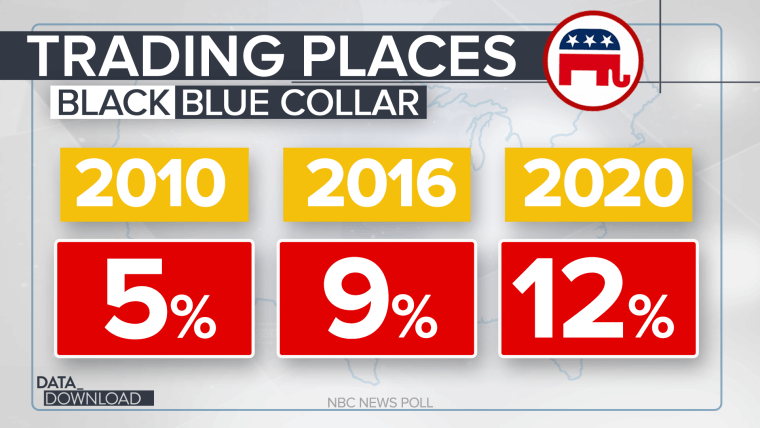WASHINGTON — The exit of Donald Trump has brought back a more normal rhythm to politics in Washington, but outside the Beltway, deeper forces are reshaping the partisan landscape.
Data from the NBC News poll shows that the composition of the two major parties is changing, and one massive shift is coming in employment: the kinds of jobs Democrats and Republicans hold. There are signs across racial and ethnic demographic groups that Republicans are becoming the party of blue-collar Americans and the change is happening quickly.
If the movement continues it could have a large impact on the future of the GOP. Consider the scale of the change overall.

In the last decade, the percentage of blue-collar voters who call themselves Republicans has grown by 12 points. At the same time, the number in that group identifying as Democrats has declined by 8 points. Among white-collar voters, the numbers have remained stable, with Democrats seeing a tiny increase and Republicans seeing a tiny drop.
But that blue-collar shift is noteworthy because of the policy implications it could have for the two parties. Blue-collar voters tend to want different things from the government than those with white-collar jobs, on issues such as trade and even Wall Street regulation.
Some signs of what this change could mean became visible just after the election when Republican voters aligned with former President Donald Trump called for larger Covid-19 relief payments from the government. A larger cash payout is not a policy choice one would normally associate with Republicans.
In that way, the blue-collar shift for the GOP has the potential to reshape the party, especially considering how far-reaching it is even beyond the white, non-Hispanic voters who make up the overwhelming majority of Republicans.

With those voters, the numbers mirror that large-scale shift — a 12-point gain for the GOP.
But the blue-collar bump spreads into other voter groups for Republicans, too, including groups that are often harder for the GOP to reach. Hispanic blue-collar voters have peeled off to the Republican Party in the past 10 years.

That 13-point gain is impressive, even bigger than the growth Republicans had with blue-collar whites, and it definitely might be seen as a bright spot for the party as it tries to find a way to make inroads with the fast-growing ethnic group. For years the assumption has been that the Democrats had an inside track to winning the Hispanic vote, but maybe that’s less true than had been believed, especially among blue-collar Hispanics.
And you can even see the Republicans' blue-collar growth among African Americans, a voter demographic that has long been deeply problematic for the GOP.

To be clear, those numbers are still very small. But considering the struggles Republicans have had wooing Black voters, even a little positive movement is something for the party to welcome. Ultimately elections are all about margins, and losing a group by 7 points fewer than the last time could pay dividends in states where the vote is close.
Together these data points suggest that GOP has not only made substantial inroads with blue-collar voters, but that the party is increasingly reliant on blue-collar voters as a key, if not the key, component of its coalition.
Political strategists often debate about the best way to win voters: Are cultural or economic appeals better? These data suggest that economic appeals might offer the Republican Party the best way to broaden its appeal. That path, however, would likely mean a retooling on policy policy approaches to make them better resonate with blue-collar voters.
And one other point as the Republicans' intra-party war grows deeper: Looking as these numbers, most of the GOP's blue-collar growth took place during the presidency of Trump. If this is the path the Republicans choose going forward, it might mean tying the party even closer to him.